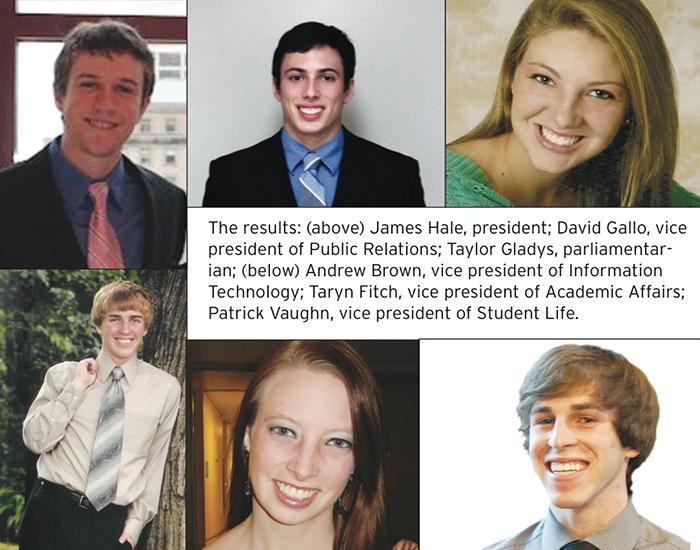Last Thursday and Friday, Mar. 22 and 23, Case Western Reserve University undergraduates voted in the undergraduate student government (USG) general assembly executive elections for the next academic year.
Students elected a new president, vice presidents, and individual school representatives. In addition, students voted on a number of minor constitution referendums that were placed on the ballot by current USG members for student review.
For president, junior James Hale defeated sophomore Navein Arumagasaamy with 71 percent of the 786 votes cast by the student body.
The number of students who voted represents less than 20 percent of the undergraduate student body as a whole. This figure is typical of USG general assembly elections, with usually less than a quarter of the over 4000 eligible voters voting.
In a statement to The Observer before the election, Hale, a civil engineering major, emphasized one of his main goals next year: “I hope to revise how student groups are funded, making the processes for students simpler and more flexible.”
Many students are critical of the current mass funding policy, which can make it difficult for smaller student groups to receive funding. The USG Finance Committee handles the recognition and disbursement of funds for student groups.
Hale also spoke about instituting a borrowable projector program, which USG members have discussed extensively recently. Hale previously served as the USG vice president of Student Life.
Junior biology major Patrick Vaughn beat medical anthropology student Sharif Sabe in the contest for next year’s vice president of Student Life.
In a statement to The Observer, Vaughn discussed his new role. “I first intend to follow through on the projects the current Student Life Committee has not yet completed, such as a follow-up on the campus smoking policy, working to implement the new posting policy, and an assortment of other smaller projects,” he explained.
“Some new initiatives I am personally excited about working on are simplifying the room reservation system, refocusing the Community Hour, and helping to improve daily student life by improving upon many of the unnecessary everyday nuances on campus.”
The vice president of Public Relations election was separated by only 12 votes, with Daniel Gallo defeating Amaka Okocha 51 to 49 percent.
Colin Williams beat Ellen Schloff for vice president of Finance, and Andrew Brown beat Scott McHenry for vice president of Information Technology.
Trayn Fitch, a chemistry and sociology major, was elected vice president of Academic Affairs after running unopposed.
Freshman Taylor Gladys was elected over fellow freshman Connor Toomey to be parliamentarian, who is responsible for making sure USG operates within its bylaws.
Representatives were also chosen for each of the university’s four undergraduate schools: the College of Arts and Sciences, the Case School of Engineering, the Frances Payne Bolton School of Nursing, and the Weatherhead School of Management.
Representatives are distributed proportionally to the number of students enrolled in the individual schools; the business and nursing school have three representatives, and the arts and sciences and engineering schools have 13 and 10 respectively.
A referendum on the ballot this year passed, which stated that each school would be guaranteed a minimum of three representatives regardless of its current enrollment.
The referendum was placed on the ballot because the Weatherhead School and the Nursing School do not always have enough enrollees to maintain more than one or two representatives.
Current USG president Divya Aggarwal said, “A caucus of only two members is very ineffective and cannot do much for their constituency… We thought that three was the smallest, strongest number to run a caucus.”
A referendum to remove the minimum grade point average of 2.5 for USG members to maintain their positions was struck down by students. USG put the referendum on the ballot in hopes that USG members would only have to retain good academic standing to be members.
Good academic standing for a full-time student is considered a cumulative GPA of a 2.0 or higher with 12 academic hours.
Aggarwal explained the desire for the new GPA requirement: “This was to have consistency with university policy, because it is hard to hold someone to two different standards.”
“The university policy should be the epitome of what everyone will be following. My interpretation of the results indicate that the students want to hold our members to a higher standard.”


